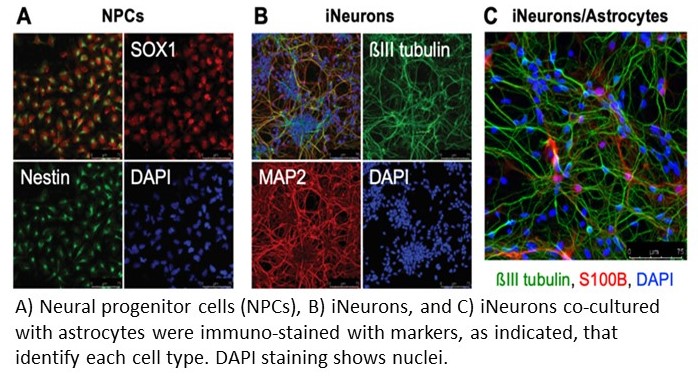Psychiatric Genetics Program
The central focus of the Psychiatric Genetics Program is to identify the genetic causes of severe psychiatric disorders such as schizophrenia, bipolar disorder, depression, PTSD, and substance use disorders. Despite tremendous advances in genetics, molecular, and cellular biology, as well as psychopharmacology, the fundamental biological nature of psychiatric disorders remains largely elusive. To address this issue, the Psychiatric Genetics Program utilizes a model of collaboration and dialogue between investigators working in the laboratory and investigators working directly with patients. Behavioral outcomes are correlated with genetic underpinnings and biological mechanisms in order to understand the biology behind psychiatric disorders.
The laboratory utilizes genomic and proteomic techniques, in both humans and animal models, to investigate how changes in DNA sequence and epigenetic modifications cause changes in protein function. This, in turn, causes changes in brain function and behavior and may lead to the development of mental disorders. One key area of investigation focuses on understanding the role that the immune system plays in development of mental illnesses. We know that stress – either social stress or biological stress due to infections or illness – plays an important role in activating the immune system and can have serious consequences in individuals who have a genetic predisposition to develop psychiatric disorders.
Consuelo Walss-Bass, PhD, established the UTHealth Brain Collection resource to help study brain disorders and create healthy changes for future generations https://med.uth.edu/psychiatry/research/programs/the-uthealth-brain-collection-for-research-in-psychiatric-disorders/. Brain tissue provides a crucial resource for understanding the biological causes of mental illness and other psychological challenges, such as substance abuse. In addition, Walss-Bass currently focuses on development of human induced-pluripotent stem cells and subsequent differentiation into neuronal cells and astrocytes to obtain virtual brain biopsies of individuals with psychiatric disorders.
Under the direction of Walss-Bass our programs aims to answer the following questions:
- What makes certain individuals vulnerable to developing different psychiatric disorders?
- How do changes in genetic/epigenetic architecture contribute to changes in biological functions that affect the outcome of mental illnesses?
- How can mental illness be treated if we know which genes are not working?
- Why do some mentally ill patients respond well to medications and others do not?
- What role do genes involved in regulation of immune system response play in development of psychiatric disorders?
- What are the neurotoxic consequences of different drugs of abuse?
Director
 Consuelo Walss-Bass, PhD
Consuelo Walss-Bass, PhD